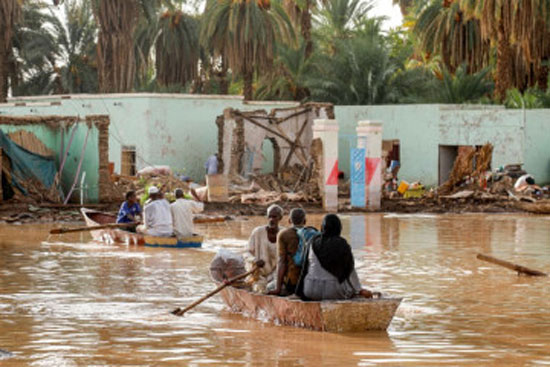Daijiworld Media Network - South Sudan
South Sudan, Oct 14: The humanitarian crisis in South Sudan is worsening rapidly, with nearly 890,000 people affected by severe flooding, more than doubling the number reported just three weeks ago, according to the United Nations.
Farhan Haq, deputy spokesperson for the UN Secretary-General, revealed at a daily briefing that the Office for the Coordination of Humanitarian Affairs (OCHA) is tracking escalating flood impacts across the country, driven by heavy rains and rising Nile River levels.
The hardest-hit regions are the states of Jonglei and Unity, where nearly one-third of those affected have been displaced and forced to seek shelter on higher ground.

"The floods have devastated homes, farmland, schools, health facilities, roads, and other vital infrastructure," said Haq, noting that access for aid workers has become significantly more challenging.
Despite the deteriorating conditions, UN agencies and humanitarian partners continue to deliver life-saving aid, including shelter kits, food, nutrition supplies, clean water, health services, and sandbags to mitigate further damage.
However, with above-average rainfall expected to continue, the risk of further flooding remains high.
The ongoing response is being severely constrained by funding shortfalls. As of October 13, the 2025 Humanitarian Needs and Response Plan for South Sudan, which aims to support 5.4 million people with a $1.7 billion appeal, is only 30% funded. This shortfall threatens the scale-up of emergency efforts, pre-positioning of supplies, and continuity of ongoing operations.
Recent data from UN humanitarian agencies also reported 19 deaths and over 639,000 people impacted across 26 counties in six states. At least 121 health facilities have been affected, alongside rising health concerns such as 3,391 cases of malnutrition and 144 reported snake bites.
South Sudan’s geographic location in the Nile River Basin, combined with its low-lying terrain, makes it highly vulnerable to flooding. In recent years, climate change and extreme weather patterns have intensified the crisis, displacing entire communities, damaging food systems, and deepening widespread food insecurity.
The UN continues to call on the international community for urgent support to avert a deeper humanitarian catastrophe in the flood-stricken nation.